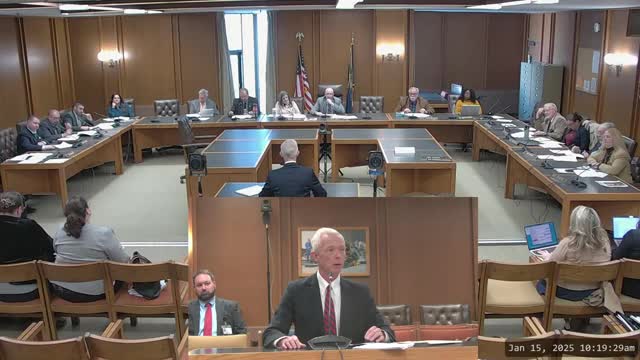Public defenders and judiciary warn of indigent defense staffing crisis, arraignment and caseload strains
Get AI-powered insights, summaries, and transcripts
Subscribe
Summary
Judicial leaders and the New Hampshire Public Defenders described severe staffing and caseload pressures in indigent defense, gaps at arraignment, and mitigation steps including pro bono recruitment, clinical student clinics and proposed rule changes.
State judicial leaders and the New Hampshire Public Defenders told the Criminal Justice and Public Safety Committee that public defense services are under sustained strain, producing constitutionally significant gaps in counsel and serious workload pressures.
“Since 2010, [the Public Defender’s Office] has had a 262 percent increase in its retention, dropping in retention,” the chief justice said while describing growing caseload complexity driven in part by electronic evidence. The chief justice also cited a Judicial Council report and said a March 2024 Legal Briefing Association (LBA) finding showed that between 20 and 40 incarcerated defendants lacked attorneys and between about 100 and 125 non‑incarcerated defendants lacked counsel at that snapshot.
Suzanne Ketteridge, interim executive director of the New Hampshire Public Defenders (NHPD), said the agency handled 21,322 criminal cases in 2023 with roughly 140 attorneys on a “good day,” and called caseloads “crushing.” She said average caseloads are “running close to a 100,” making the work unsustainable and prompting mitigation efforts including recruiting lateral attorneys, partnering with the UNH School of Law clinical program and seeking administrative relief on practice rules for supervised third‑year law students.
Ketteridge outlined mitigation steps the NHPD is pursuing: hiring experienced lateral attorneys (including outreach beyond state lines), expanded use of law school clinics for supervised student representation, continued collaboration with contract and assigned counsel panels, and exploring rule changes that would allow supervised law students or temporarily admitted laterals to increase capacity. She noted pay and retention issues, and that many young attorneys are burning out after heavy caseloads.
Committee members pressed the judiciary and NHPD on arraignment coverage. Ketteridge said arraignments are a current operational pinch point, particularly for incarcerated misdemeanor defendants for whom counsel is constitutionally required. The chief justice described a volunteer surge from large firms that has helped but said volunteer and pro bono efforts are not a statutory mandate and cannot fully substitute for system capacity.
The attorney general’s office and county prosecutors described their roles in felony prosecution and coordination with local prosecutors; they were identified by presenters as potential partners in addressing systemic workload and case‑management challenges.
Both judiciary and defenders flagged electronic discovery and proliferation of body‑worn and surveillance video as major drivers of complexity, requiring more forensic review time per case. The chief justice said the judicial branch and big law firms have tried to help “step up” through volunteer programs, and the legislature’s 2024 authorization to allow paraprofessionals in limited circuit court matters was described as a helpful development for civil filings.
Committee members were urged to consider targeted funding and policy changes to stabilize defender pay and staffing, expand clinical representation, and improve arraignment coverage; presenters volunteered to provide follow‑up data on pay scales, vacancy rates and the potential impacts of magistrate rule changes on arraignments.
No committee action was taken at the hearing; presenters offered to provide additional data and to meet with members considering legislation affecting indigent defense.
